SDG13
The 7th ICGPSRO Opens at NCKU, Connecting Global Space Science Expertise and Focusing on Next-Generation GNSS-RO/R Technologies
The 7th International Conference on GPS Radio Occultation (ICGPSRO) was held from October 28 to 30 at Wanghong Hall, Cheng Kung Campus, National Cheng Kung University (NCKU). Leading experts and scholars from the United States, Europe, Japan, and other top research institutions gathered to discuss the latest advances in Global Navigation Satellite System (GNSS) radio occultation and reflection remote sensing technologies (GNSS-RO/R) for meteorology, climate, and space weather research. Through these academic exchanges, the conference aimed to enhance the global research community’s understanding of Taiwan’s contributions to occultation observations and space weather research, while strengthening Taiwan’s international scientific presence.
ICGPSRO is a major international conference in the field of GNSS occultation and remote sensing. In 2025, it was co-hosted by National Cheng Kung University’s Han-Min Hsia Summer Space Science and Technology Center (HMSSTC, 成大夏漢民太空科技中心) and National Central University’s Global Atmospheric Observation and Data Application Research Center (GAODARC, 中央大學全球大氣觀測與資料應用研究中心), with planning support from NCKU, National Central University, the National Space Organization (NSPO/TASA, 國家太空中心), and the University Corporation for Atmospheric Research (UCAR, 美國大氣科學研究大學聯盟). This conference is one of the few Taiwan-based international gatherings focused on space science that connects the global academic community.
The three-day conference covered key topics including ionospheric variations, numerical weather prediction data assimilation, GNSS-R ocean surface wind observations, and applications for next-generation satellite missions. International experts in space and atmospheric sciences shared the latest innovations in GNSS remote sensing, applications of space weather monitoring data, and forward-looking developments in climate observations.
In addition to keynote speeches and technical forums, ICGPSRO featured poster sessions and a Young Researchers Forum, providing opportunities for early-career scientists to engage directly with international experts. Through these interactions, the conference aimed to cultivate a new generation of researchers proficient in GNSS observations, data analysis, and modeling applications, further advancing Taiwan’s space science capabilities.
Since the FORMOSAT-3 and FORMOSAT-7 missions, Taiwan has played a critical role in global occultation observations, providing some of the world’s most extensive datasets and making significant contributions to weather forecasting and space weather monitoring.
The NCKU team has been central to both missions. During the FORMOSAT-3 mission, they contributed to ionospheric data analysis and the development of space weather prediction models. In the FORMOSAT-7 mission, they were the first to reveal low-latitude ionospheric oscillations triggered by stratospheric warming over Antarctica through occultation observations. The findings were published in the top international journal Geophysical Research Letters.
In recent years, NCKU’s Han-Min Hsia Summer Space Science and Technology Center (HMSSTC, 成大夏漢民太空科技中心) has actively engaged in satellite development and space observation research. The center promotes interdisciplinary integration and international collaboration, gradually establishing Taiwan’s key capabilities in space science. This conference brought together domestic space research institutions and international professional organizations to create a platform for both scientific discussion and technical cooperation.
Through the 2025 ICGPSRO, NCKU continues to expand its international influence in space science, deepen Taiwan’s collaboration with global research institutions, and advance the development of next-generation satellite observation and space remote sensing missions.
ICGPSRO is a major international conference in the field of GNSS occultation and remote sensing. In 2025, it was co-hosted by National Cheng Kung University’s Han-Min Hsia Summer Space Science and Technology Center (HMSSTC, 成大夏漢民太空科技中心) and National Central University’s Global Atmospheric Observation and Data Application Research Center (GAODARC, 中央大學全球大氣觀測與資料應用研究中心), with planning support from NCKU, National Central University, the National Space Organization (NSPO/TASA, 國家太空中心), and the University Corporation for Atmospheric Research (UCAR, 美國大氣科學研究大學聯盟). This conference is one of the few Taiwan-based international gatherings focused on space science that connects the global academic community.
The three-day conference covered key topics including ionospheric variations, numerical weather prediction data assimilation, GNSS-R ocean surface wind observations, and applications for next-generation satellite missions. International experts in space and atmospheric sciences shared the latest innovations in GNSS remote sensing, applications of space weather monitoring data, and forward-looking developments in climate observations.
In addition to keynote speeches and technical forums, ICGPSRO featured poster sessions and a Young Researchers Forum, providing opportunities for early-career scientists to engage directly with international experts. Through these interactions, the conference aimed to cultivate a new generation of researchers proficient in GNSS observations, data analysis, and modeling applications, further advancing Taiwan’s space science capabilities.
Since the FORMOSAT-3 and FORMOSAT-7 missions, Taiwan has played a critical role in global occultation observations, providing some of the world’s most extensive datasets and making significant contributions to weather forecasting and space weather monitoring.
The NCKU team has been central to both missions. During the FORMOSAT-3 mission, they contributed to ionospheric data analysis and the development of space weather prediction models. In the FORMOSAT-7 mission, they were the first to reveal low-latitude ionospheric oscillations triggered by stratospheric warming over Antarctica through occultation observations. The findings were published in the top international journal Geophysical Research Letters.
In recent years, NCKU’s Han-Min Hsia Summer Space Science and Technology Center (HMSSTC, 成大夏漢民太空科技中心) has actively engaged in satellite development and space observation research. The center promotes interdisciplinary integration and international collaboration, gradually establishing Taiwan’s key capabilities in space science. This conference brought together domestic space research institutions and international professional organizations to create a platform for both scientific discussion and technical cooperation.
Through the 2025 ICGPSRO, NCKU continues to expand its international influence in space science, deepen Taiwan’s collaboration with global research institutions, and advance the development of next-generation satellite observation and space remote sensing missions.
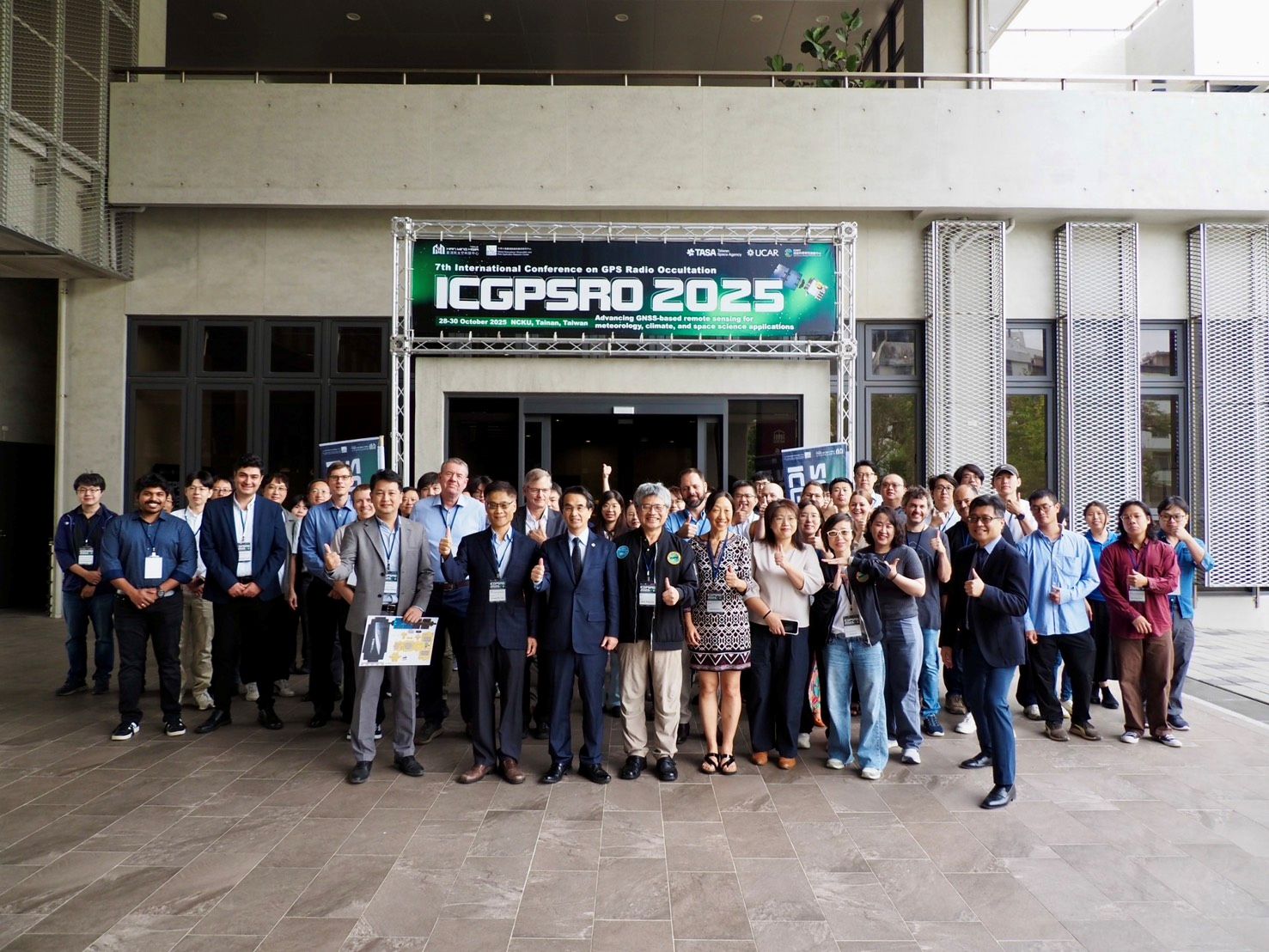
Group photo
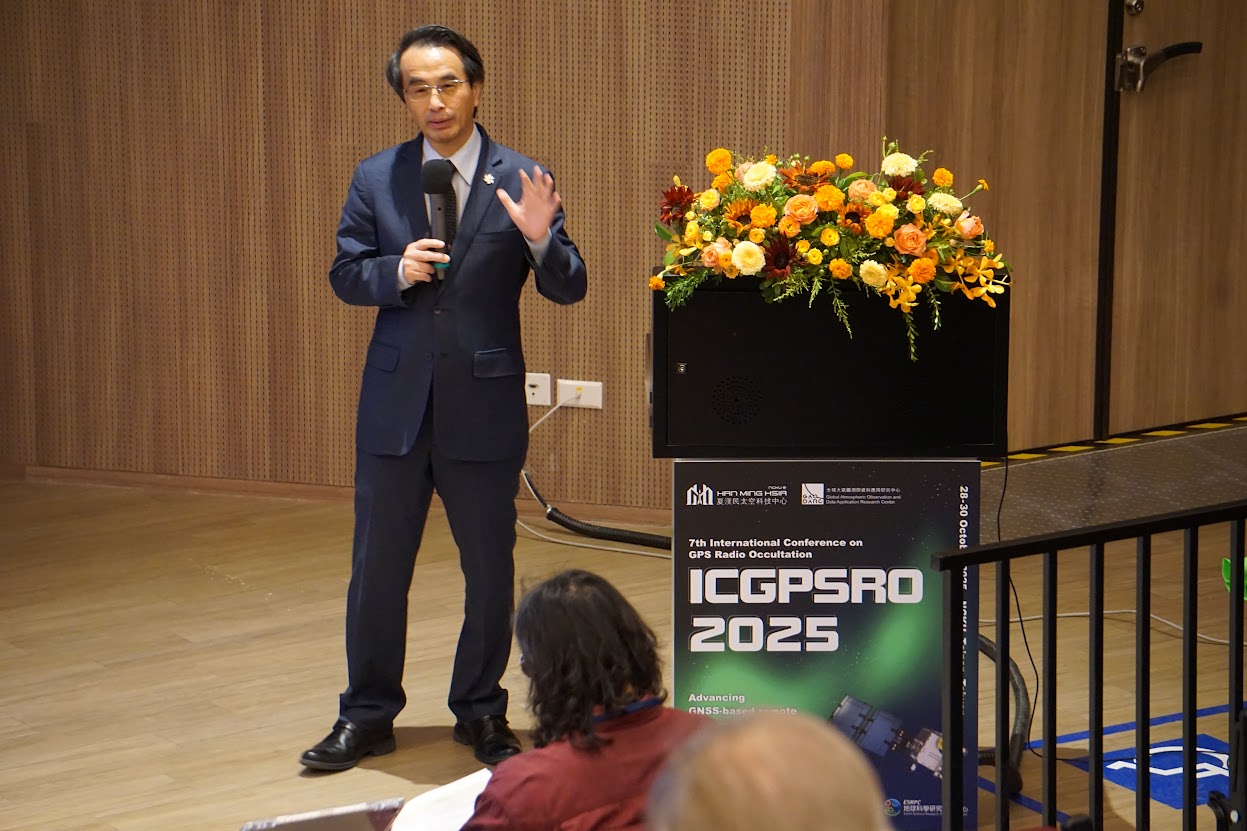
Opening Remarks by Tsung-Hsin Wu (吳宗信), Director of the National Space Organization (TASA)
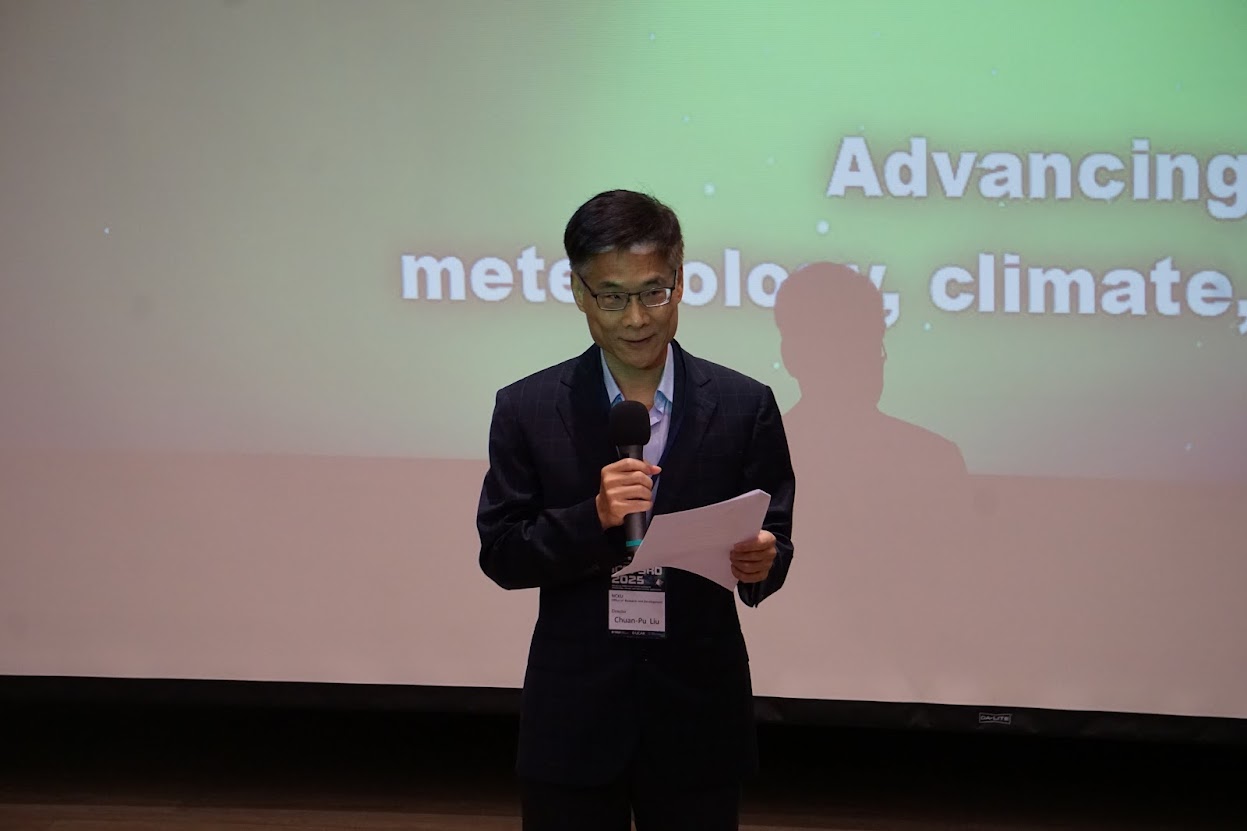
NCKU Dean of Research & Development Department Chuan-Pu Liu (劉全璞)
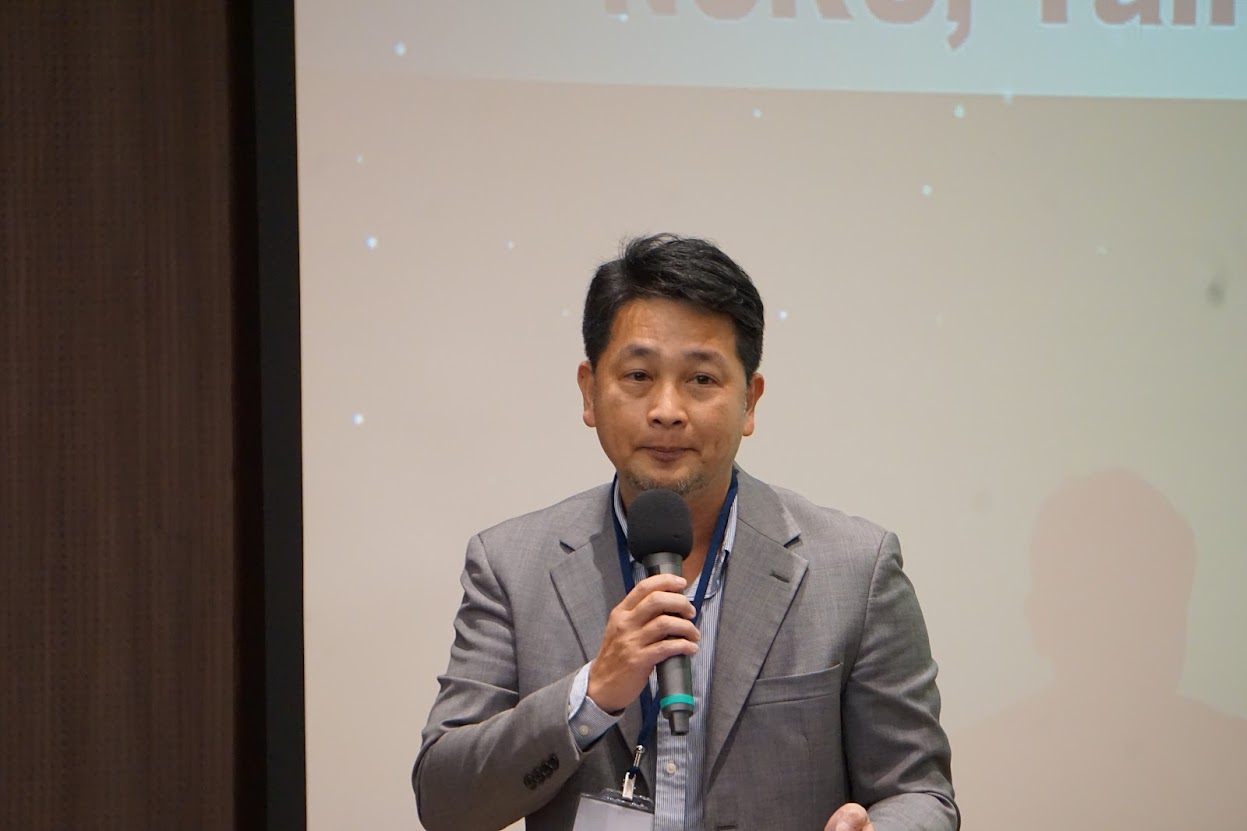
NCKU Deputy Vice President for International Affairs Wei-Hsun Chang (張巍勳)
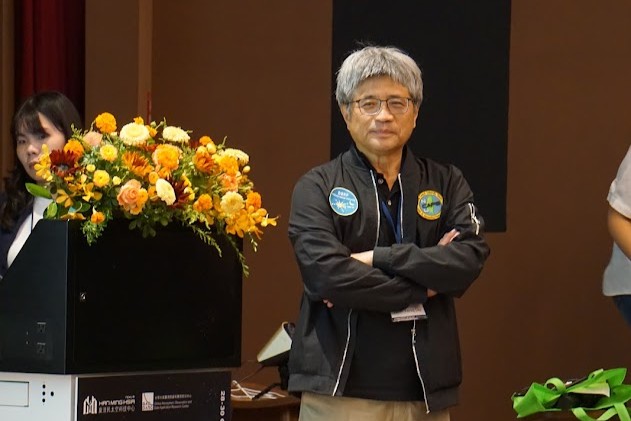
Professor Cheng-Yen Liu (劉正彥), National Central University
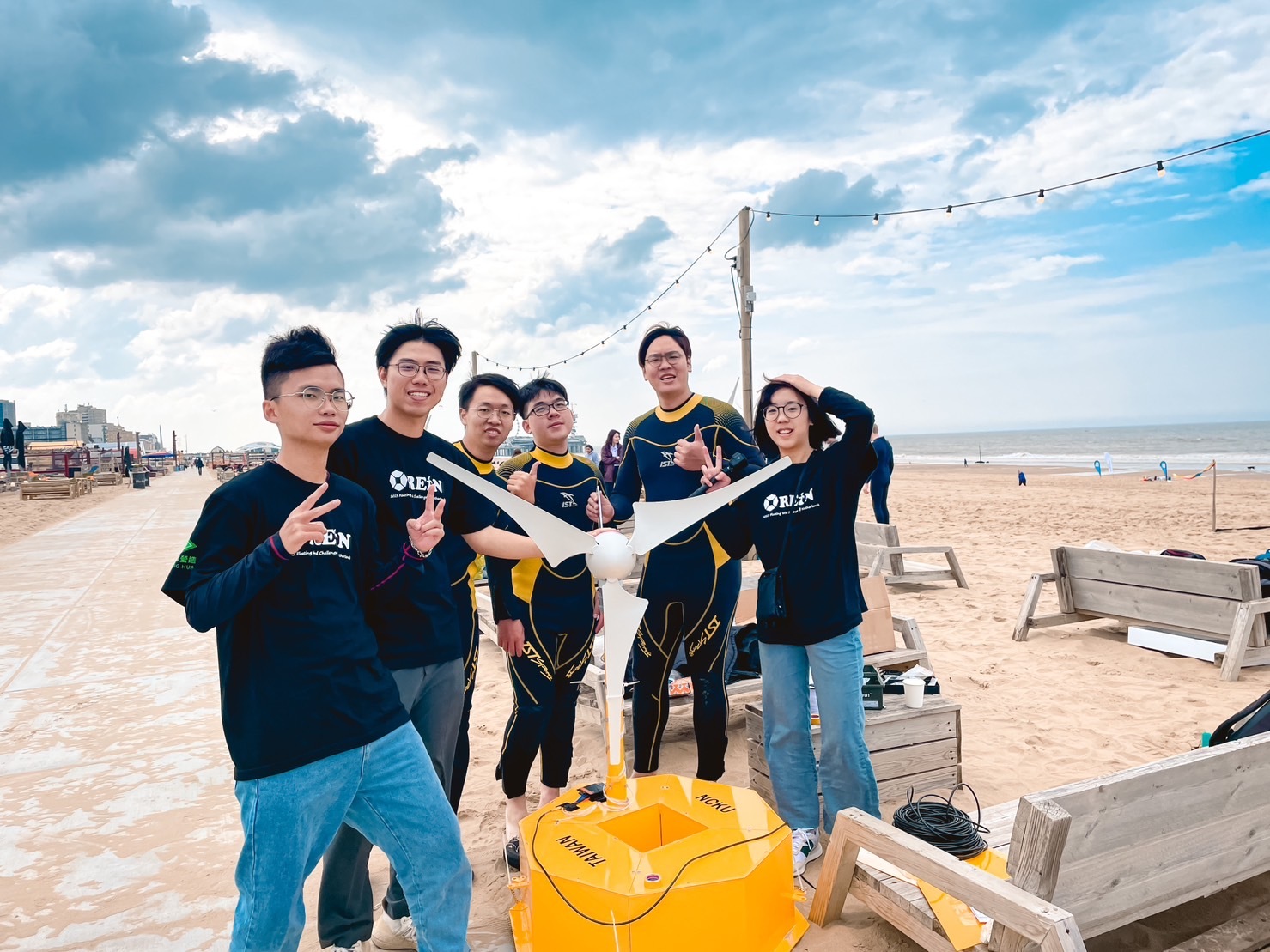
SDG13Flying over 10,000 km – NCKU Students Win Double International Recognition in North Sea Floating Wind Challenge.
View more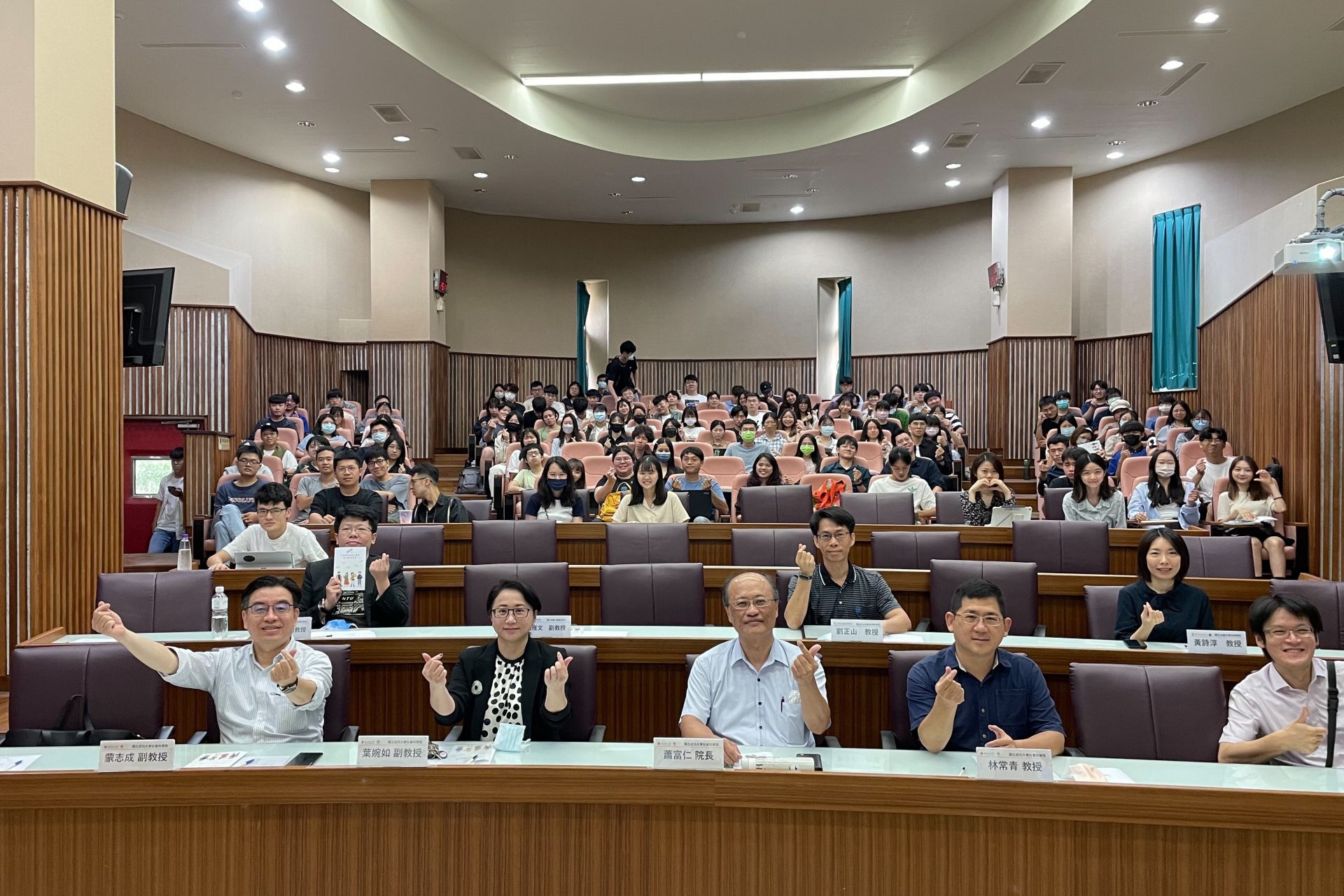
SDG13NCKU College of Social Sciences Credit Program's End-of-Term Joint Achievement Exhibition held an online popularity award event.
View more



















